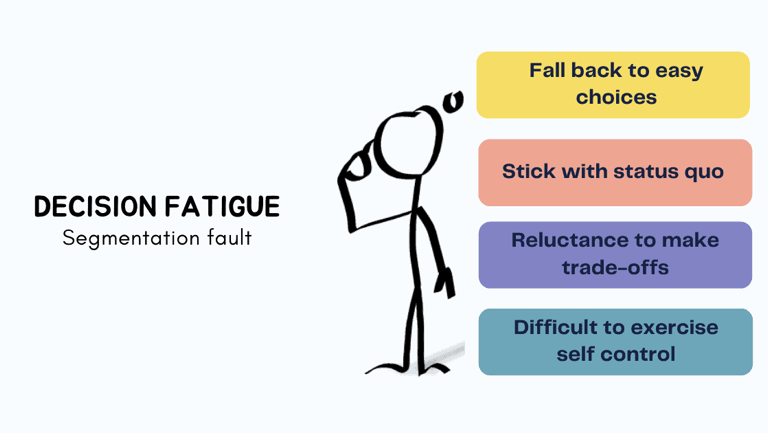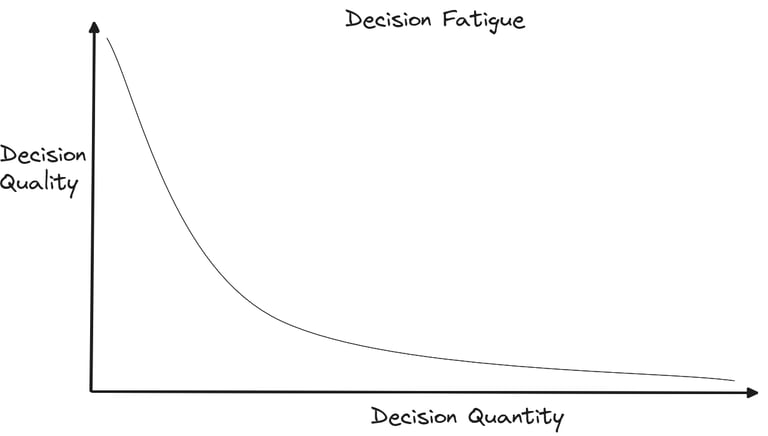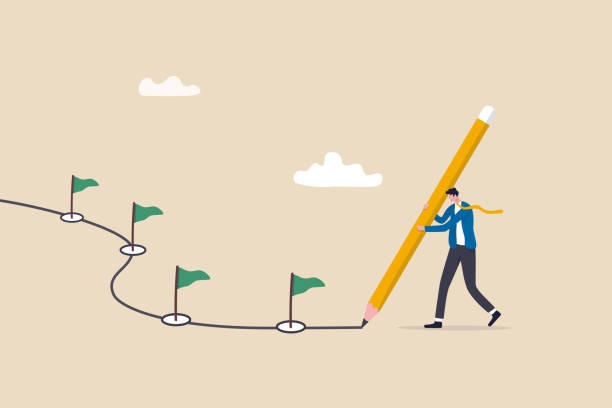Decision Fatigue
What is decision fatigue, how does it manifest, and what can we do about it?
Erik Friebe
5/10/20242 min read


What is decision fatigue?
Deteriorating quality of decisions made by individuals after a long decision-making session -> the cumulative effect of repetitive and exhaustive decision-making
Psychologist say we have a finite amount of willpower -> the more decisions you make, the lesser the willpower remains
Can be a cause of irrational trade-offs in decision making


Most famous example: consumers making very poor choices with their purchases because of too many offers and decisions during shopping
Unlike physical fatigue which we can feel and instantly express, the mental fatigue that comes after making multiple decisions is not visible to us
What are the charateristics of decision fatigue?
Become reckless -> Act impulsively instead of taking the time to think through the consequences of your decision
Too many options -> Too many choices can tax your mind leaving less energy for making further decisions
Stuck with analysis paralysis -> Chase a perfect solution instead of making the best decision under the given circumstances
Choose the status quo -> Cause you to stay inside you comfort bubble ans resist the idea of a change
React aggressively -> Your brain's regulatory power weakens causing you to lose control over your emotions
5 steps to overcome decision fatigue
Be an essentialist -> A disciplined, systematic approach for determining where our highest point of contribution lies, then making execution of those things almost effortless.
Get things out of your head -> By not spending mental cycles in deciding every instant on what to do next, you can avoid decision fatigue and free up more resources to do the real work. It will also help you attend to those urgent situations which are not under your control with the right state of mind. (Eisenhower Matrix)
Eat the frog first -> Tackle your most challenging task first, one that demands your mental capacity to process information at its best. By prioritising work that will have the greatest positive impact on your life and matching the mental demands of the work with your energy levels, you will be able to make the best decisions when you are not under the effect of decision fatigue.
Believe you have more willpower -> By exercising your willpower in moments when a decision has to be made, you may not make the best decision, but it will be much better than the one without it (like placebo-effect).
Know when its time to stop -> Take feedback from your past decisions, identify patterns based on your best and worst decisions and incorporate it into your planning. By knowing when you operate well and when you are physically present but mentally absent, you can make a choice to opt-out of the decision process and push those decisions to a later stage.


